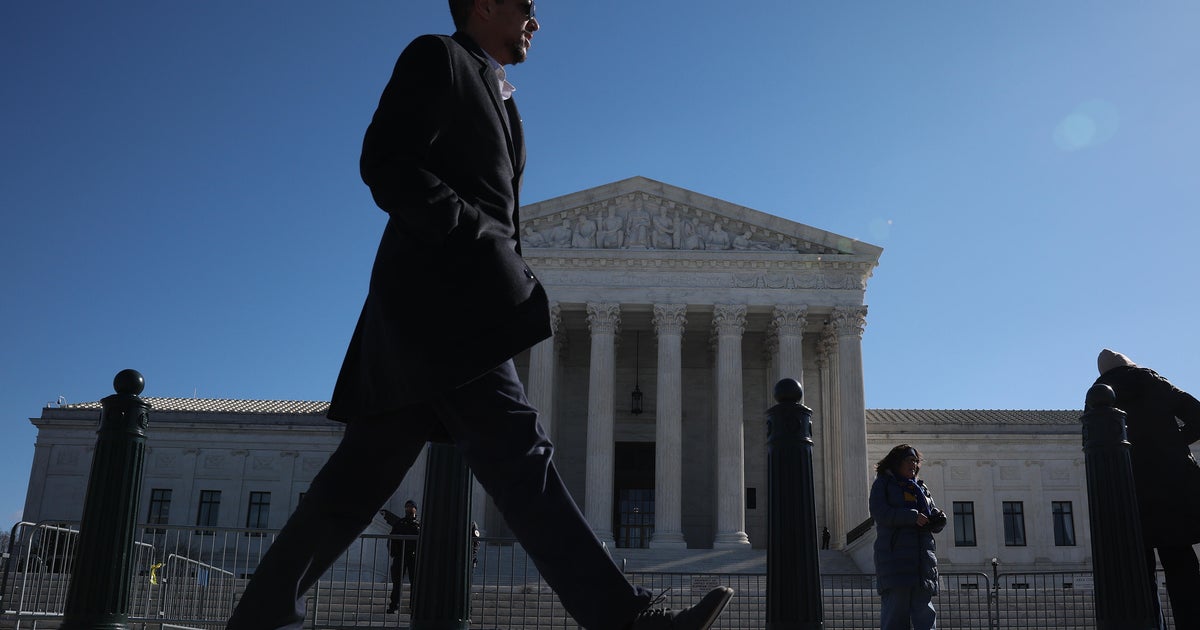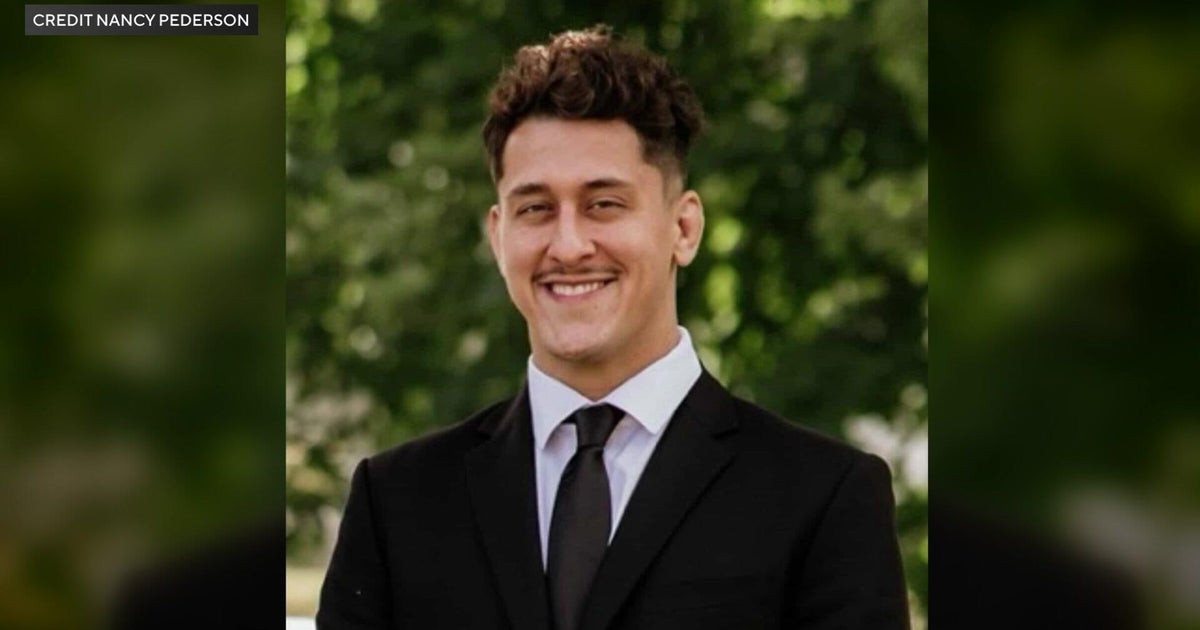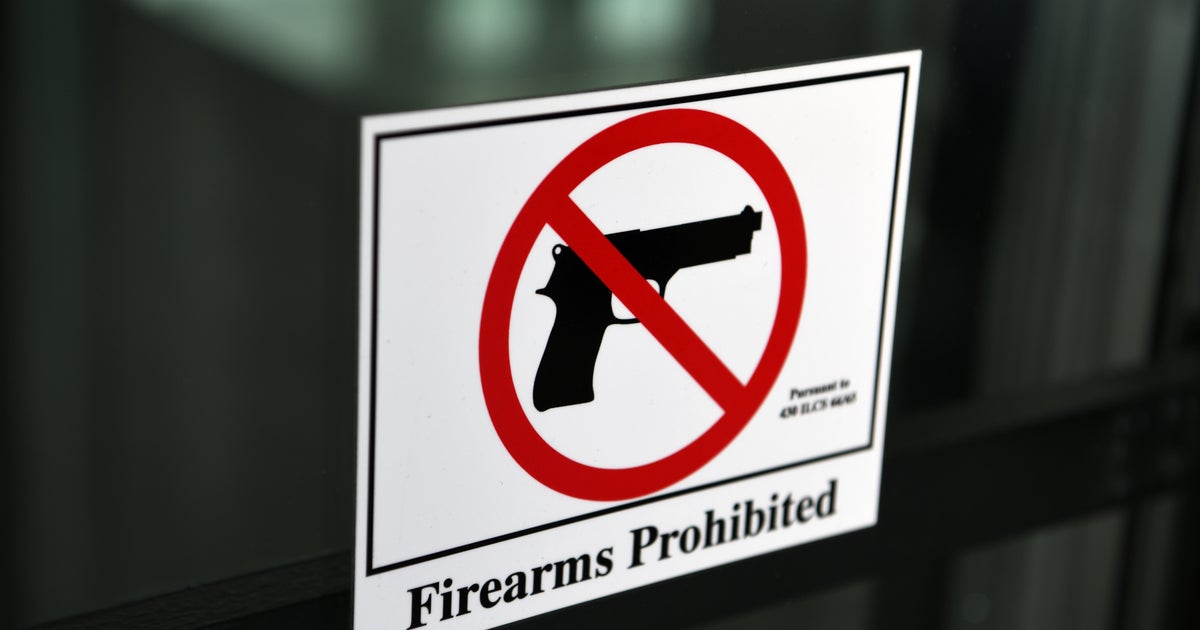Supreme Court Ruling Imperils Abortion Laws In Many States
Follow CBSDFW.COM: Facebook | Twitter
NEW YORK (AP) — By striking down tough abortion restrictions in Texas, the U.S. Supreme Court has emboldened abortion-rights activists nationwide and imperiled a range of anti-abortion laws in numerous states.
Many anti-abortion leaders were openly disappointed, bracing for the demise of restrictions that they had worked vigorously to enact over the past few years.
The Supreme Court has decided "the abortion industry will continue to reign unchecked as mothers are subjected to subpar conditions," said Heather Weininger, executive director of Wisconsin Right to Life.
On the other side of the debate, Planned Parenthood president Cecile Richards hailed the ruling as "an enormous victory for women," and joined her abortion-rights allies in vowing to quickly seek gains beyond Texas.
"Far too many women still face insurmountable barriers, which is why we are taking this fight state by state," she said. "It's time to pass state laws to protect a woman's constitutional right to abortion, and repeal ones that block it."
The Texas rules struck down Monday by the Supreme Court required doctors who perform abortions to have admitting privileges at nearby hospitals and forced clinics to meet hospital-like standards for outpatient surgery. Supporters of the Texas law, and similar laws enacted in other states, said both provisions were necessary to ensure safe, high-quality care for women. Opponents of the laws said abortion already is a very safe procedure, and contended the real motive of the laws was to reduce women's access to abortion.
According to the Center for Reproductive Rights, which led the legal challenge, similar admitting-privilege requirements are in effect in Missouri, North Dakota and Tennessee, and are on hold in Alabama, Kansas, Louisiana, Mississippi, Oklahoma and Wisconsin. The hospital-like outpatient surgery standards are in place in Michigan, Missouri, Pennsylvania and Virginia, and are on hold in Tennessee, according to the center.
Monday's ruling is likely to remove an ongoing threat to the only abortion clinic still operating in Mississippi. A Texas-style law there would have shut down the Jackson Women's Health Organization clinic, but enforcement of that law had been blocked pending resolution of the Texas case.
The sponsor of the Mississippi law, state Rep, Sam Mims, said he now expects that the law is doomed. It requires doctors who perform abortions to be able to admit patients to a hospital within 30 miles of their clinics; providers at the Jackson clinic had been unable to obtain such privileges.
"It's very disappointing that ... it seems like these five justices are more concerned about access to abortion than health care to the women," Mims said in a phone interview.
In Alabama, Attorney General Luther Strange said his office is ending the legal fight over its law requiring abortion doctors to have hospital-admitting privileges. The state had been appealing a judge's 2014 decision finding Alabama's law unconstitutional.
If the admitting privilege requirement was enforced, as many as four of the state's five abortion clinics could close.
The legislative director of Louisiana Right to Life, Deanna Wallace, said the Supreme Court decision doesn't automatically invalidate Louisiana's Texas-style law, but it "does not predict a favorable forecast for its future."
In several states, including Oklahoma, Kansas, Michigan and Missouri, state officials said they were reviewing the status of their abortion restrictions in light of the high court ruling
In Pennsylvania, a Democratic state senator, Daylin Leach, said he would introduce legislation seeking to repeal a 2011 law that tightened requirements at abortion clinics. The law requires such clinics to comply with the same safety standards as outpatient surgery centers, including requirements for wider hallways and doorways, bigger operating rooms, and full-time nurses.
The law was signed by then-Gov. Tom Corbett, a Republican, in the aftermath of a Philadelphia criminal case in which an abortion provider, Dr. Kermit Gosnell, was convicted of killing newborn babies during illegal, late-term abortion procedures performed in filthy surroundings.
An abortion-rights lawyer, Sue Frietsche, said the law inflicted heavy financial burdens on abortion clinics throughout Pennsylvania and contributed to the closure of several of them.
Looking ahead, a key question for both sides in the abortion debate is to what extent Monday's ruling will affect other types of abortion restrictions, beyond the two provisions at stake in the Texas law.
For example, more than a dozen states have passed laws banning most abortions after 20 weeks of pregnancy, on the disputed premise that a fetus can feel pain at that stage. Several states have recently banned dilation-and-extraction, a common second-trimester abortion technique which opponents have depicted as "dismemberment abortion." Some states now require a 72-hour waiting period before a woman can have an abortion.
Nancy Northup, CEO of the Center for Reproductive Rights, said her legal team will be reviewing these and other laws to determine if they are now vulnerable in the aftermath of Monday's high court ruling.
In the ruling, Justice Stephen Breyer wrote that the Texas requirements provided few, if any, health benefits for women, while placing "an undue burden" on their constitutional right to seek an abortion.
The question ahead, Northup said, is whether other types of state restrictions also pose such a burden.
"It's going to be interesting to see if responsible lawmakers realize they need to start upholding women's rights or continue with this game of Whack-a-Mole that's been going on," said Northup, referring to states that launched new anti-abortion legislation even as earlier measures were blocked by litigation.
(© Copyright 2016 The Associated Press. All Rights Reserved. This material may not be published, broadcast, rewritten or redistributed.)







